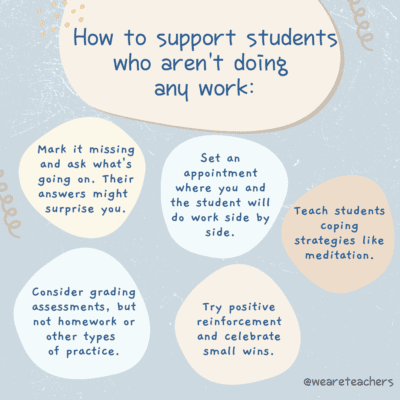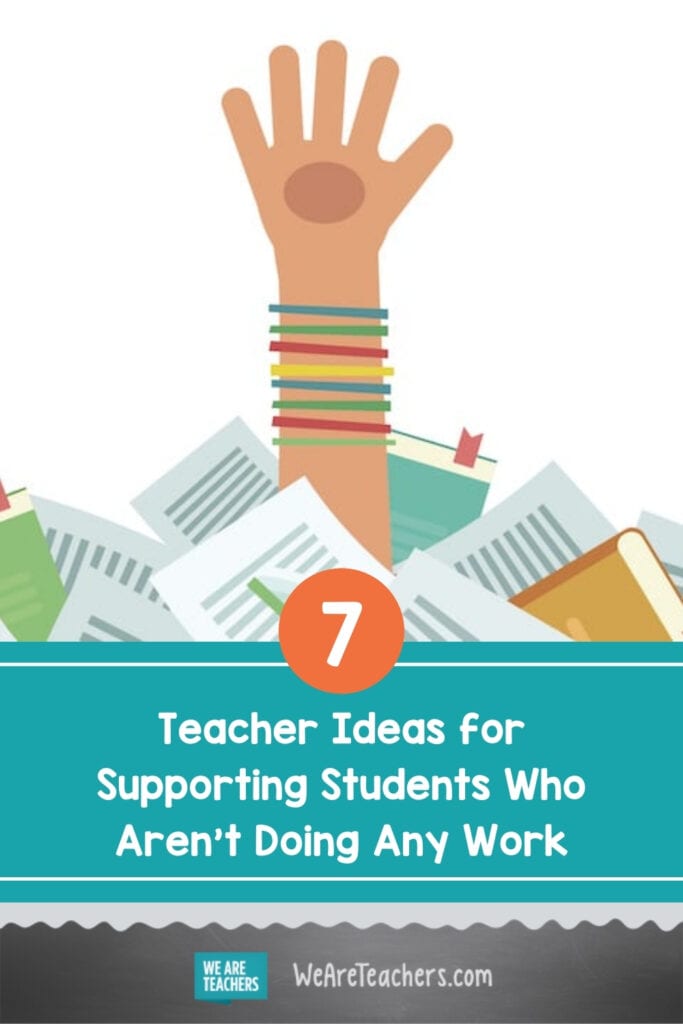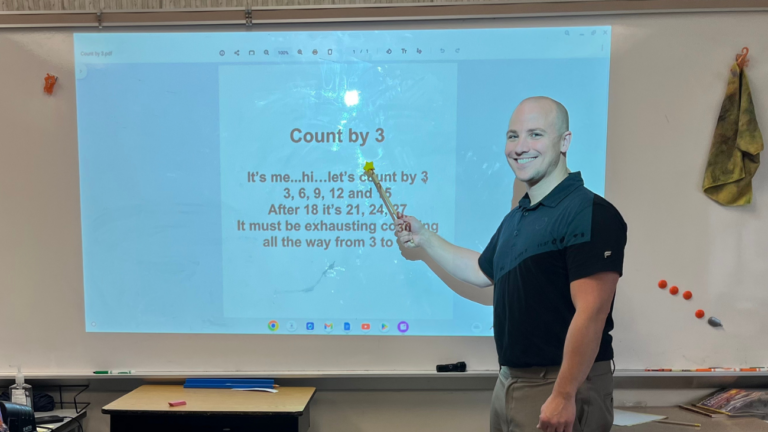What do you do when your students aren’t doing any work? Whether you are a new teacher or a veteran, we all struggle with this. We want to teach and help our students learn, not spend hours taking away points in Class Dojo or making exceptions. So it did not surprise me when I saw a teacher post, “Warning vent ahead: I am so tired of students not doing their work. I want to celebrate those who do, but penalize those who don’t” in our WeAreTeacher HELPLINE Facebook group.
I can relate to her frustration. But penalizing students who aren’t doing any work doesn’t solve the problem. There are ways we can help students who aren’t doing any work. We asked you, and you answered.
How we respond to missing or late work says a lot about what we think it means to be a teacher.
There’s a reason why the Facebook discussion over this topic generated so many comments. We want our students to learn, but in order for us to determine if they have learned, we need them to do the work. If students don’t do any work this feels impossible. As one teacher, Mary, put it, “I feel like I am a project manager sometimes more than a teacher. I’m dependent on the kids to their work so I can do my job.” So what do we do? A common thread in the comments was: before we put a zero in our grade books, it’s worth evaluating if the work we’re asking students to do is meaningful. Do they have the skills they need to complete it? Is it too much? Not enough? If we know we are asking students to do work that is fair, we can shift our attention to why they aren’t doing it. Here are some ways teachers are helping students who aren’t doing any work.
1. Mark it missing, and ask what’s going on. Their answer might surprise you.
After 21 years of teaching, I realize that kids have issues we aren’t aware of. Mark it missing. Then ask the kid what’s going on. Their answer might surprise you. Compassion and understanding have to be at the front of all we do. —Michelle
I am showing grace, but they must show effort and communication with me. Yes, zeros happen but can be overturned. Students need to follow through. —Tara
2. Invite students to reflect on why they aren’t doing any work.
I have an online form that the students fill out when they submit assignments after the due date. One field they have to fill out explains why it’s late. That has been eye-opening, and when they tell me what’s going on, I often offer grace and no penalty for being late. —Chris
We have to reach out and give students a hand who aren’t doing any work by getting them started on the missing assignment, helping them to clarify their thinking, or even making ourselves available during the day or after hours to help them achieve success. —Shelly
[contextly_auto_sidebar]
3. Teach students coping strategies.
I saw an increase in work getting done when I taught students coping strategies. Begin or end a class with meditation exercises to help students get focused. Check in with students during independent work. These are simple and small ways to support your students.—Kerith
4. Ask students to write a weekly email and set goals.
I have my students send a weekly email home that includes what we have been doing in class and a picture of the grades from Powerschool. They also have to include a goal on how they will get missing assignments in. I email this to parents with me cc’d in and goes in as a grade. —Lea
5. Consider grading assessments, but not homework or other types of practice.
I grade the assessments only and make sure they align with the standards. This will give them a grade based on what they know and can do. If they do not complete the assessments, give an incomplete. —Caitlin
Keep it simple. We’re grading them on the work that they do, not the work that they don’t do. —Kevin
6. Try positive reinforcement and celebrate students’ small wins.
I created a board called “Make yourself PROUD!” I post weekly the names of the students that are on task and send home certificates every month. —Kristy
Kids want to do well. Sometimes they just need more encouragement. Although it is exhausting to see so many half-assed assignments. I just try to convey that it’s not what I expect from them. I have a copy-paste response: This assignment is designed to demonstrate your understanding. Please review the material and when you turn in an example of your understanding, your grade will reflect that! You got this! Go give it another go!—Tuesday
7. Even when you’ve tried everything, never give up on your students.
Separating behavior from assessment is critical! We cannot possibly understand all of the reasons why students may not be completing their work. It is easy to just say they are lazy/choosing not to do the work and should be punished so they learn accountability but this is not really in the best interest of the child. Many students do not respond well to this punitive system and will continue to fail. —Caitlin
I finally came to the conclusion that I have my core students who deserve attention because they participate and do their assignments. For the others, after months of messages home and DoJoing the names of students who have done their homework, I can keep the light on…be excited and encouraging when they do appear. —Marie
Looking for more? Here are some ideas for how to address missing work.

For more articles like this, be sure to subscribe to our newsletter!
Plus, 5 Practical Ways Teachers Can Respond To, “I Don’t Get It.”


